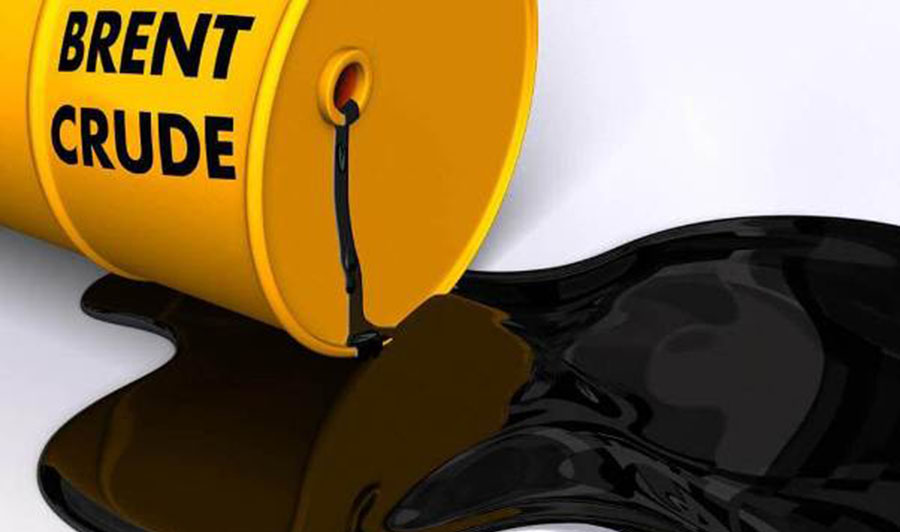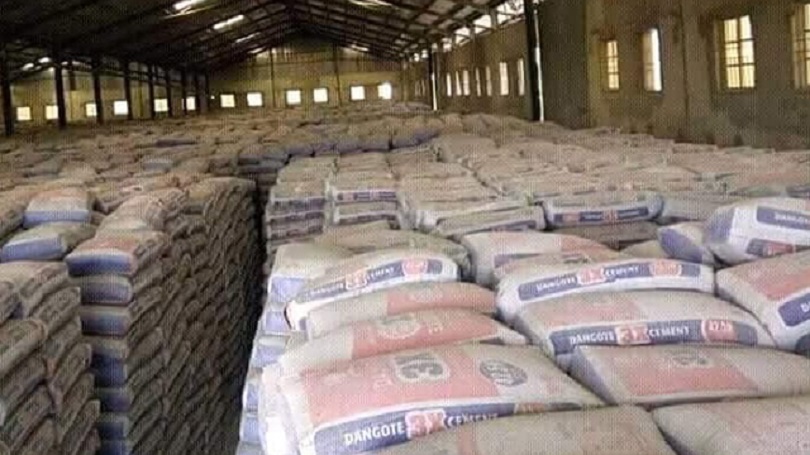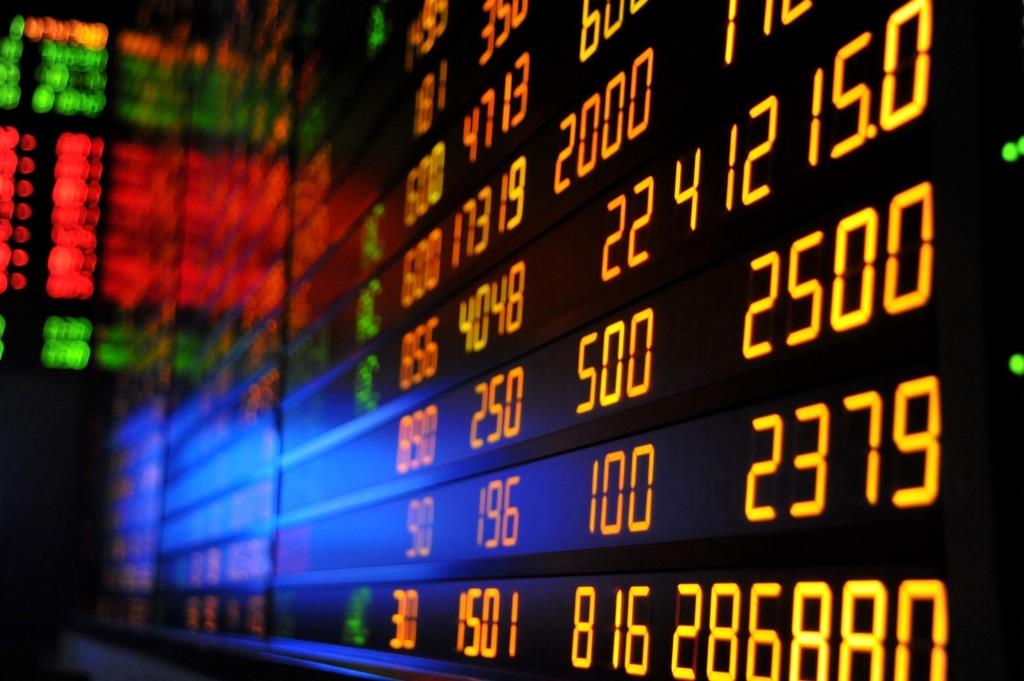Economy
Brent Jumps to $96 Per Barrel on Further Tighter Supply

By Adedapo Adesanya
Brent crude futures surged by 2.8 per cent or $2.59 on Wednesday to the highest settlement in 2023 at $96.55 per barrel after a steep drop in crude stocks in the United States compounded worries of tighter global supplies.
The price of the US West Texas Intermediate crude futures (WTI) climbed by 3.6 per cent or $3.29 to $93.68 as the Energy Information Administration (EIA) reported a crude oil inventory draw of 2.2 million barrels for the week to September 22 in the country.
In the preceding week, the agency posted an inventory draw of 2.1 million barrels, which, in turn, followed a build of around 4 million barrels for the week before that.
The EIA report followed the American Petroleum Institute’s estimate, which showed a crude oil inventory draw of some 1.6 million barrels. More importantly, however, the API also estimated that stocks at Cushing, Oklahoma, had slipped to below 22 million barrels, which is on the brink of the minimum operating level for the hub.
The markets are already deep in worries about tight supplies heading into winter, following production cuts of 1.3 million barrels a day to the end of the year by Saudi Arabia and Russia of the Organization of the Petroleum Exporting Countries and allies (OPEC+).
More supply tightness is expected as Russian President Vladimir Putin ordered his government to ensure retail fuel prices stabilise after a jump caused by an increase in exports.
He ordered his government to make sure retail fuel prices stabilise and urged additional measures to balance the domestic market following the introduction of a ban on gasoline and diesel exports.
Mr Putin told the cabinet it needed to act swiftly and that reviewing oil industry taxes was an option.
The government last Thursday introduced a temporary ban on exports of gasoline and diesel to all countries beyond four ex-Soviet states to try to stem an increase in domestic fuel prices.
In response, his deputy prime minister, Mr Alexander Novak, cited proposals to restrict exports of oil products purchased for domestic use.
He said that there are proposals to restrict “grey” fuel exports, or the purchase of oil products initially meant for domestic use and exported instead for a higher price, and to raise fuel export duty.
The Russian government is also reconsidering a cut to damper payments, or subsidies to oil refineries, which began this month, he said.
Economy
Investors Transact 3.860 billion Stocks Worth N128.581bn in Five Days

By Dipo Olowookere
Last week, on the floor of the Nigerian Exchange (NGX) Limited, investors transacted 3.860 billion stocks worth N128.581 billion in 240,463 deals versus the 3.087 billion stocks valued at N81.505 billion traded in 222,185 deals in the preceding week.
In the five-day trading week, financial equities led the activity chart with 2.188 billion units valued at N50.459 billion in 94,005 deals, contributing 56.68 per cent and 39.24 per cent to the total trading volume and value, respectively.
Services stocks followed with 466.771 million units worth N4.495 billion in 18,526 deals, and ICT shares sold 377.800 million units for N9.049 billion in 25,653 deals.
Chams, Access Holdings, and Universal Insurance were the most active in the week with 664.942 million units valued at N6.801 billion in 15,161 deals, contributing 17.23 per cent and 5.29 per cent to the total trading volume and value apiece.
Business Post reports that 71 equities appreciated during the week versus 44 equities in the previous week, as 35 stocks depreciated compared with 49 stocks a week earlier, while 42 shares closed flat versus 55 shares in the preceding week.
RT Briscoe was the biggest price gainer with a price appreciation of 60.69 per cent to close at N12.63, Zichis gained 60.38 per cent to trade at N6.72, Abbey Mortgage Bank chalked up 59.04 per cent to settle at N14.95, Union Dicon expanded by 49.14 per cent to N13.05, and Austin Laz grew by 38.46 per cent to N5.40.
Conversely, Deap Capital was the biggest price loser after giving up 27.37 per cent to quote at N6.82, Union Homes REIT lost 26.99 per cent to finish at N69.25, Red Star Express declined by 17.55 per cent to N17.15, UPDC REIT shrank by 12.29 per cent to N7.85, and Cornerstone Insurance tumbled by 12.24 per cent to N5.45.
From the above data, the week was under buying pressure, which raised the All-Share Index (ASI) and the market capitalisation by 3.84 per cent to 171,727.49 points and N110.235 trillion, respectively.
Similarly, all other indices finished higher with the exception of the insurance index, which depreciated by 2.33 per cent due to sell-offs.
Economy
Dangote Cement Assures African Consumers Sufficient Supply With 90MT Yearly

By Aduragbemi Omiyale
Leading cement maker, Dangote Cement Plc, has reaffirmed its commitment to making Africa fully self‑sufficient in cement production by raising its output to 90 million metric tonnes per annum by 2030 from the current 52 million metric tonnes per annum.
The chief executive of the firm, Mr Arvind Pathak, during a strategic briefing on the company’s expansion drive, disclosed that efforts are being made to accelerate investments across African markets to close supply gaps and support the continent’s infrastructural ambitions.
According to him, the organisation is strengthening the continent’s industrial backbone and reducing reliance on imported construction materials, stressing that, “Our vision is clear — to ensure Africa produces enough cement to meet its own needs…Through continuous expansion, operational excellence, and a strong distribution network, we are positioning Dangote Cement to power growth across the continent. We are not just building a business; we are building Africa’s future.”
“Through our collective determination, we have eliminated Nigeria’s dependence on imported cement and transformed the country into a net exporter of cement to several neighbouring nations,” Mr Pathak added.
Dangote Cement currently operates in multiple African countries, with integrated plants, grinding facilities, and distribution hubs strategically located to serve diverse markets.
The company’s ongoing projects include plant upgrades, capacity expansions, and the introduction of advanced energy‑efficient technologies designed to reduce operational costs and carbon footprint.
Reinforcing the company’s long-term vision, its founder, Mr Aliko Dangote, described self-sufficiency as both an economic imperative and a continental responsibility.
“Africa has no reason to depend on cement imports. We have the raw materials, the talent, and the determination. Our goal at Dangote Cement is to unlock Africa’s potential by ensuring that every nation on this continent can access affordable, high‑quality cement produced within Africa. This is how we build prosperity, job opportunities, and sustainable development,” the businessman stated.
Mr Dangote added that the company’s investments reflect its passion for unlocking continental competitiveness and fostering industrialisation across Africa.
With major infrastructural projects rising across African cities — from highways and bridges to housing developments — the demand for cement continues to grow. Dangote Cement’s renewed push toward continental self‑sufficiency is expected to address supply challenges, stabilise prices, and enhance construction reliability in the years ahead.
Economy
NASD OTC Bourse Appreciates Further by 0.46%

By Adedapo Adesanya
The NASD Over-the-Counter (OTC) Securities Exchange appreciated by 0.46 per cent on Friday, February 6, with the market capitalisation expanding by N10.2 billion to N2.207 trillion from the N2.197 trillion quoted in the previous session, while the NASD Unlisted Security Index (NSI) grew by 17.06 points to 3,689.72 points from the previous session’s 3,672.66 points.
The expansion was buoyed by the price appreciation recorded by two securities, which overpowered the declines recorded by four securities.
Central Securities Clearing System (CSCS) increased its value during the session by N4.83 to N53.50 per unit from N48.67 per unit, and IPWA Plc gained 19 Kobo to sell at N2.36 per share versus Thursday’s closing price of N2.17 per share.
On the flip side, Okitipupa Plc lost N10.77 to trade at N220.00 per unit compared with the previous price of N230.77 per unit, FrieslandCampina Wamco Nigeria Plc depreciated by N3.10 to N60.00 per share from N63.10 per share, Geo-Fluids Plc shed 45 Kobo to close at N4.30 per unit versus N4.75 per unit, and Industrial and General Insurance (IGI) weakened by 5 Kobo to 54 Kobo per share from 59 Kobo per share.
A look at the trading data showed that there was a 67.9 per cent drop in the volume of trades to 384,784 units from 1.2 million units, but the value of transactions went up by 33.5 per cent to N16.1 million from N12.0 million, and the number of deals increased by 4.4 per cent to 24 deals from 23 deals.
CSCS Plc ended the day as the most traded stock by value on a year-to-date basis with 16.3 million units exchanged for N667.6 million, followed by FrieslandCampina Wamco Nigeria Plc with 1.8 million units sold for N117.9 million, and Geo-Fluids Plc with 12.4 million units worth N79.5 million.
CSCS Plc also closed the session as the most active stock by volume on a year-to-date basis with 16.3 million units valued at N667.6 million, followed by Mass Telecom Innovation Plc with 13.7 million units worth N5.5 million, and Geo-Fluids Plc with 12.3 million units traded for N79.5 million.
-

 Feature/OPED6 years ago
Feature/OPED6 years agoDavos was Different this year
-
Travel/Tourism9 years ago
Lagos Seals Western Lodge Hotel In Ikorodu
-

 Showbiz3 years ago
Showbiz3 years agoEstranged Lover Releases Videos of Empress Njamah Bathing
-

 Banking8 years ago
Banking8 years agoSort Codes of GTBank Branches in Nigeria
-

 Economy3 years ago
Economy3 years agoSubsidy Removal: CNG at N130 Per Litre Cheaper Than Petrol—IPMAN
-

 Banking3 years ago
Banking3 years agoSort Codes of UBA Branches in Nigeria
-

 Banking3 years ago
Banking3 years agoFirst Bank Announces Planned Downtime
-

 Sports3 years ago
Sports3 years agoHighest Paid Nigerian Footballer – How Much Do Nigerian Footballers Earn















